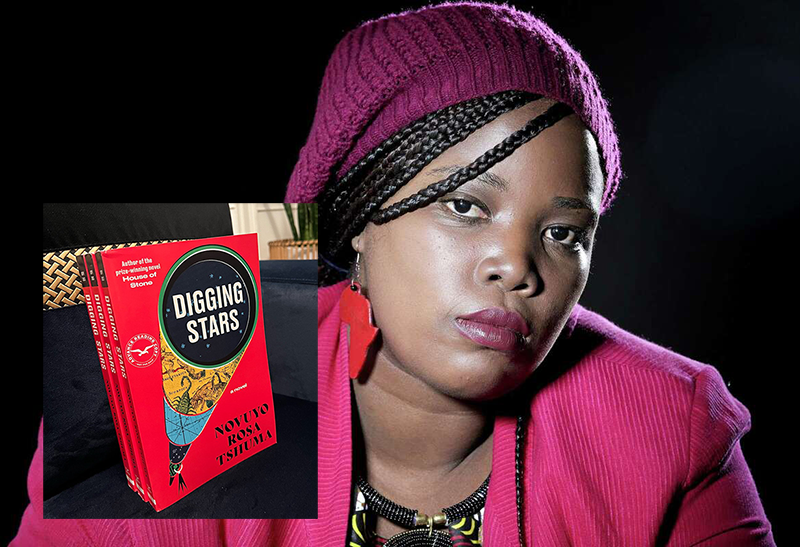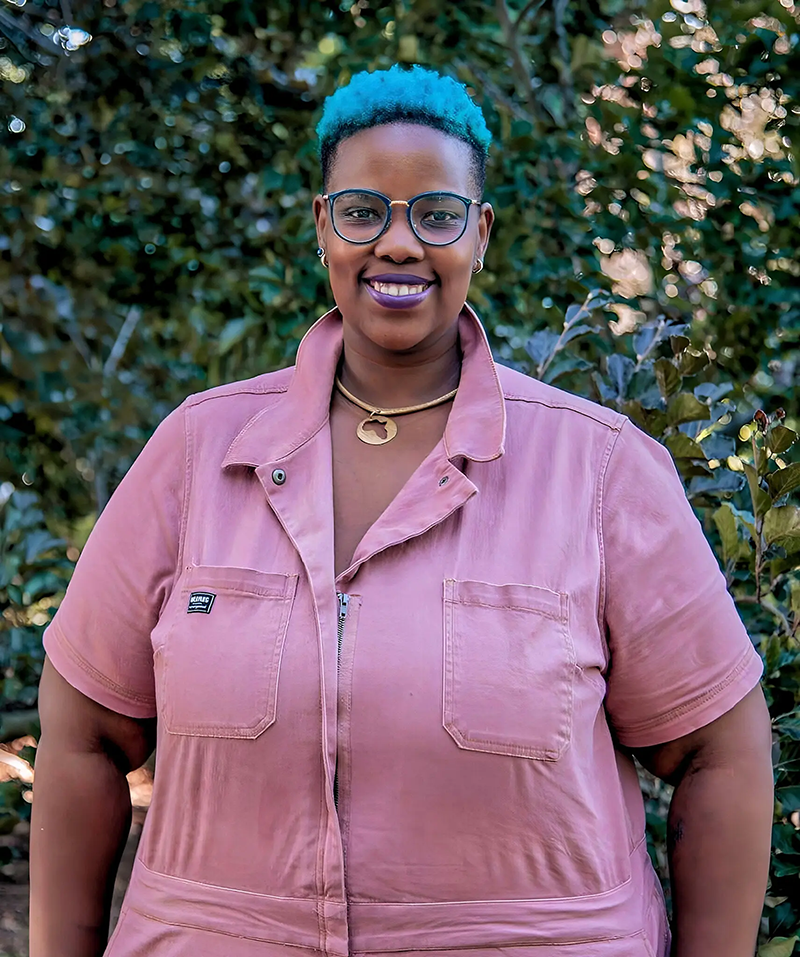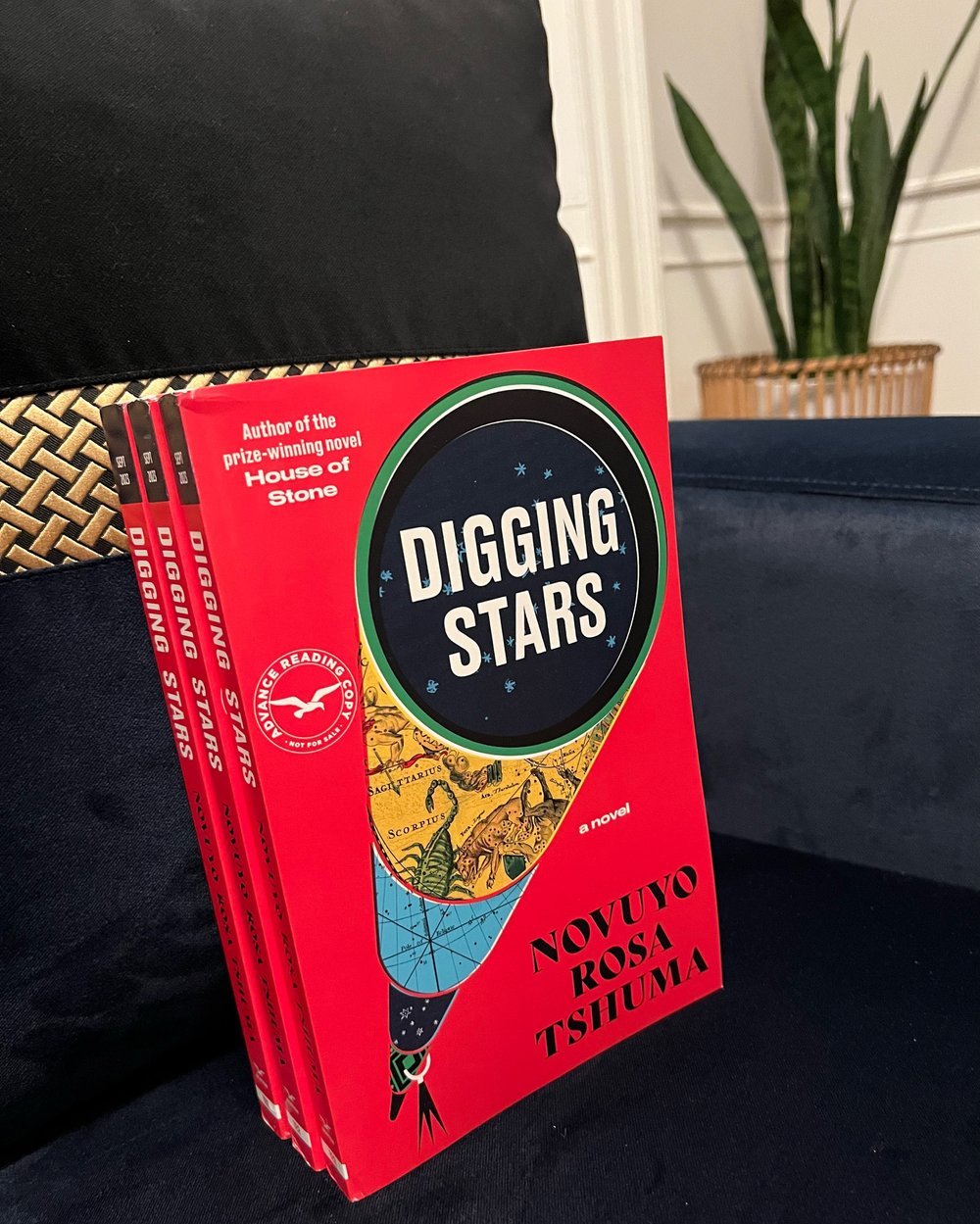- Arts & Culture
- No Comment
REVIEW: ‘Digging Stars’ – Novuyo Rosa Tshuma explores science, identity and grief

By The New York Times
The Digging Stars is a star cluster known by many names. It is most commonly called the Pleiades. Depending on who and where you are, it’s also referred to as the Seven Sisters or isiLimela, among other things. But no matter its name, in Novuyo Rosa Tshuma’s excellent debut novel, “Digging Stars,” the cluster is a force, a symbol, a family heirloom.
The story opens with a daughter, Athandwa, and a father, Frank, reuniting for the first time in years in New York City. Athandwa and her family are from Zimbabwe, but when she was a child, Frank, who was inspired by the Digging Stars, moved to the United States, at first temporarily to study astrophysics at a Midwestern research school referred to only as the Program, and then permanently to pursue a career as an astronomer.
Now 11 years old, Athandwa is visiting New York to see her father and his new life, which, she didn’t realize, includes a new family composed of a girlfriend, Candice, and Candice’s son, Péralte. The plan is that she will stay four weeks and then, when she is 12, Frank will bring her to live with him in New York for good.

When he returns to Zimbabwe a year later to pick her up, however, Frank dies in a mysterious car crash that gets called an accident, though some speculate there is more to the story. The grief surrounding this cataclysmic death accompanies Athandwa for the next decade and eventually propels her to move to America to attend the Program herself and make her father proud.
At its core, “Digging Stars” is a coming-of-age story about finding yourself during your tumultuous 20s. In America, Athandwa is both an outsider and an immigrant, and that gives her the freedom and the burden of figuring herself out anew (a process that includes letting her classmates call her by her middle name, Rosa, when they can’t pronounce her first name). She befriends her program-mates, Péralte among them, and her roommate, a biophysicist named Shaniqua.
Both are fiercely protective of Athwanda, and both are hyper aware of how their own identities — Péralte, an American with Haitian roots, and Shaniqua, an Afro-Choctaw — shape their place in their career fields and in contemporary American society. But Athwanda herself is not so sure about her place and where her responsibilities lie. When asked if she sees herself as Black, she hesitates, much to her friends’ chagrin. “Back home, you don’t have to think about being Black. Not like here in America. That’s not how we think.”
In addition to all of this, Athandwa is also dealing with psychosomatic symptoms that she calls the Terrors. Their source is a mystery but later, an astute American doctor asks Athandwa if they might be related to her suppressed grief, if Athandwa’s “quest for accomplishment” is her way of seeking out her father.
As the academic year progresses, the friends bond; Athandwa’s relationship with Péralte grows complicated; they all have intense, thought-provoking discussions about belonging and intertwined histories. These friends help Athwanda along as gradually her romanticism of America, of her father and of space itself all fall away.
Tshuma is nuanced yet explosive as she explores the intersection of science, identity and grief. The novel brims with insights about astronomy, technology and Indigenous folklore, and it thoughtfully questions how those ideas interact with race and heritage. Additionally, every description of space, science and math is rendered in moving prose that is both figuratively and emotionally charged. “Suddenly, we were no longer bodies but pools of liquefied hydrogen, no longer rigid but formless,” Athandwa thinks as she remembers a dream. “I saw my father as a floating pool of hydrogen, and he was beautiful.”
That’s a lot of topics to juggle, but the writing never feels overcrowded. At times, plot events can feel too convenient (such as Péralte coincidentally attending the same graduate program she does), but I was too immersed in Athandwa’s singular mind and her fight to be understood, to survive her past, to overcome her Terrors to care about this quibble.
In the end, this is a smart, incisive novel that blends a gripping coming-of-age story with a poignant story about loss, all the while asking us to consider: What compromises are we willing to make to achieve our highest ambitions and how much do we owe our own history?

